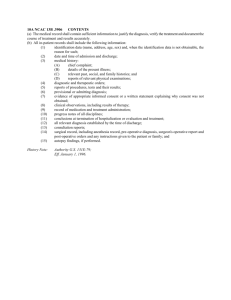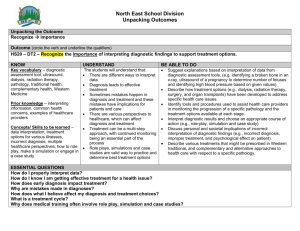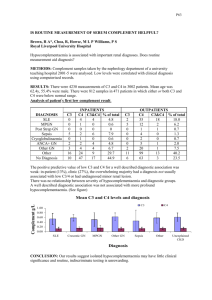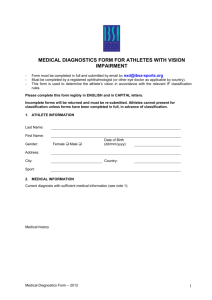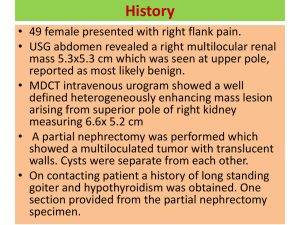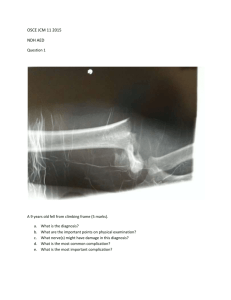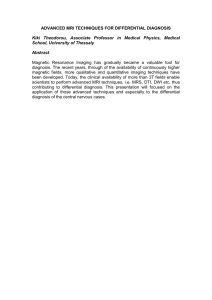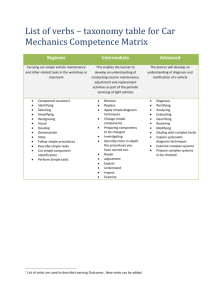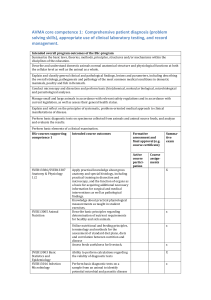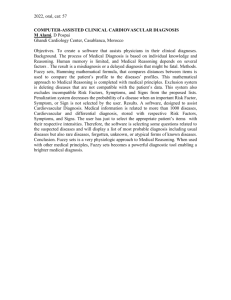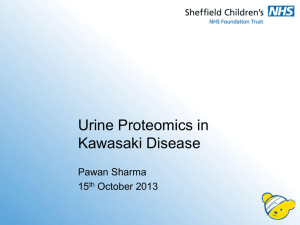modern diagnostics in medicine and ethical aspects
advertisement
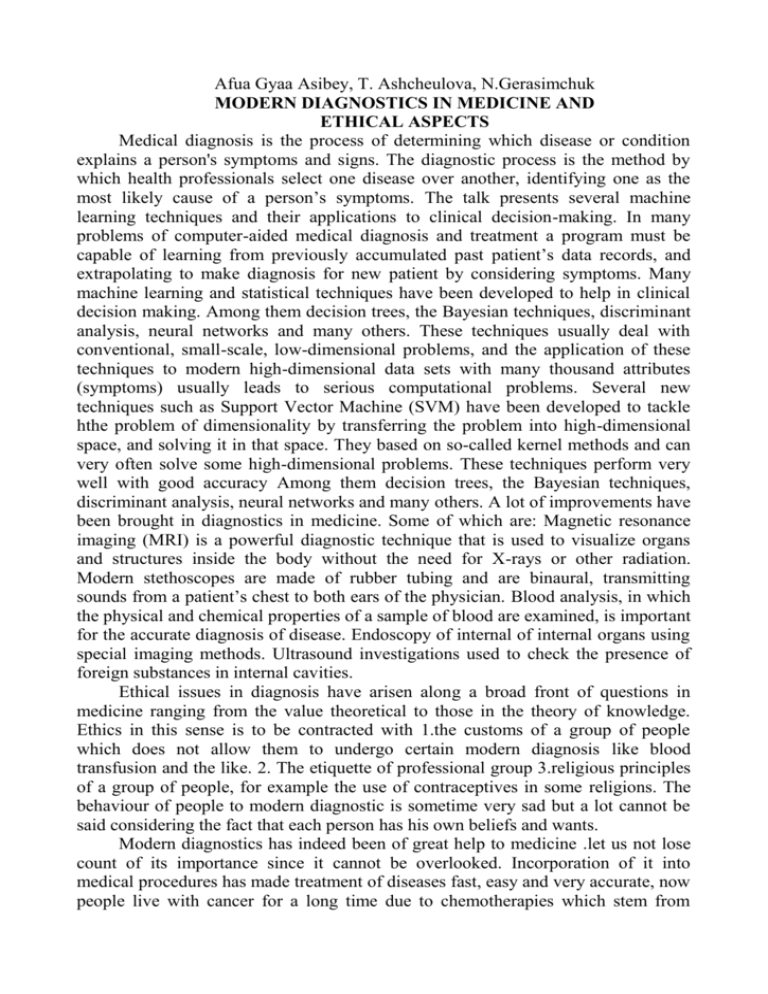
Afua Gyaa Asibey, T. Аshcheulova, N.Gerasimchuk MODERN DIAGNOSTICS IN MEDICINE AND ETHICAL ASPECTS Medical diagnosis is the process of determining which disease or condition explains a person's symptoms and signs. The diagnostic process is the method by which health professionals select one disease over another, identifying one as the most likely cause of a person’s symptoms. The talk presents several machine learning techniques and their applications to clinical decision-making. In many problems of computer-aided medical diagnosis and treatment a program must be capable of learning from previously accumulated past patient’s data records, and extrapolating to make diagnosis for new patient by considering symptoms. Many machine learning and statistical techniques have been developed to help in clinical decision making. Among them decision trees, the Bayesian techniques, discriminant analysis, neural networks and many others. These techniques usually deal with conventional, small-scale, low-dimensional problems, and the application of these techniques to modern high-dimensional data sets with many thousand attributes (symptoms) usually leads to serious computational problems. Several new techniques such as Support Vector Machine (SVM) have been developed to tackle hthe problem of dimensionality by transferring the problem into high-dimensional space, and solving it in that space. They based on so-called kernel methods and can very often solve some high-dimensional problems. These techniques perform very well with good accuracy Among them decision trees, the Bayesian techniques, discriminant analysis, neural networks and many others. A lot of improvements have been brought in diagnostics in medicine. Some of which are: Magnetic resonance imaging (MRI) is a powerful diagnostic technique that is used to visualize organs and structures inside the body without the need for X-rays or other radiation. Modern stethoscopes are made of rubber tubing and are binaural, transmitting sounds from a patient’s chest to both ears of the physician. Blood analysis, in which the physical and chemical properties of a sample of blood are examined, is important for the accurate diagnosis of disease. Endoscopy of internal of internal organs using special imaging methods. Ultrasound investigations used to check the presence of foreign substances in internal cavities. Ethical issues in diagnosis have arisen along a broad front of questions in medicine ranging from the value theoretical to those in the theory of knowledge. Ethics in this sense is to be contracted with 1.the customs of a group of people which does not allow them to undergo certain modern diagnosis like blood transfusion and the like. 2. The etiquette of professional group 3.religious principles of a group of people, for example the use of contraceptives in some religions. The behaviour of people to modern diagnostic is sometime very sad but a lot cannot be said considering the fact that each person has his own beliefs and wants. Modern diagnostics has indeed been of great help to medicine .let us not lose count of its importance since it cannot be overlooked. Incorporation of it into medical procedures has made treatment of diseases fast, easy and very accurate, now people live with cancer for a long time due to chemotherapies which stem from modern diagnostics. Also recently people with organs failures are treated with a lot of accuracy and professionalism. Let all of us therefore embrace modern diagnosis and incorporate them into our various ways of treatment.
